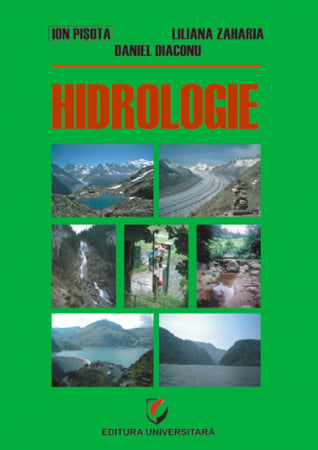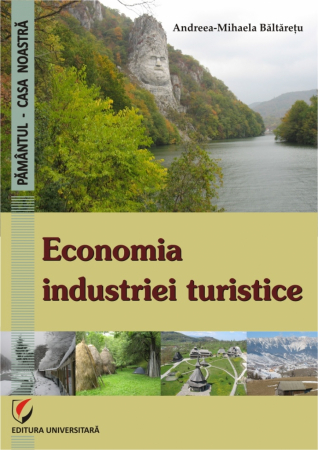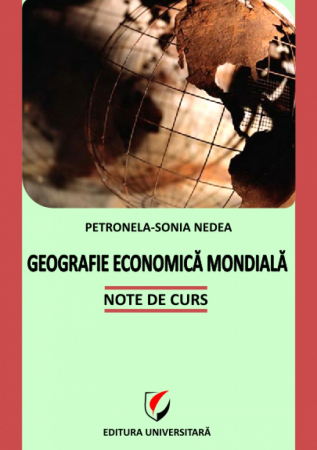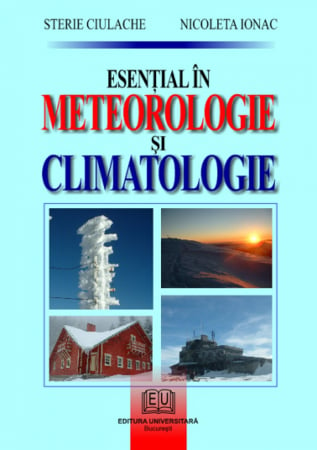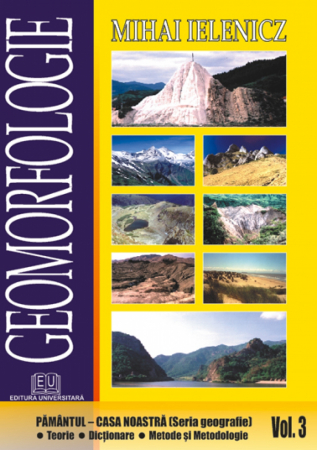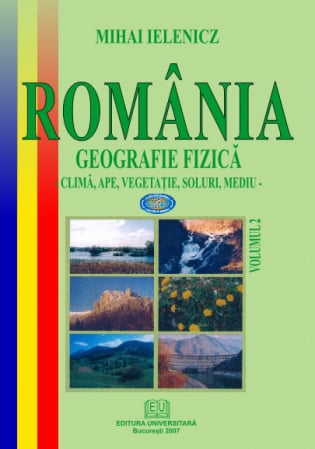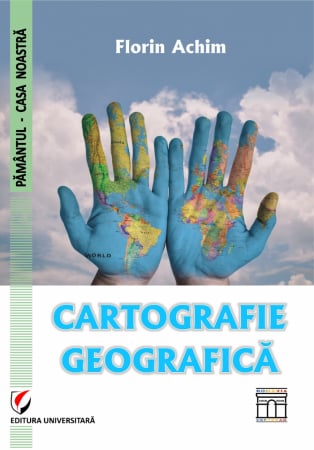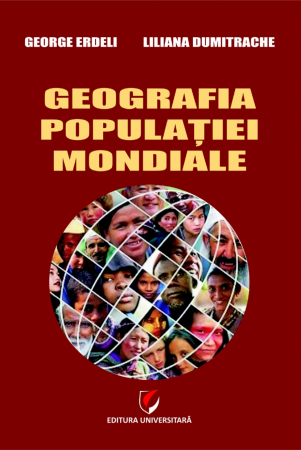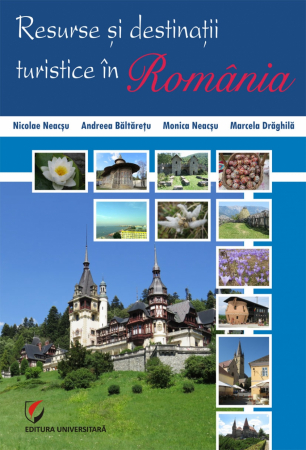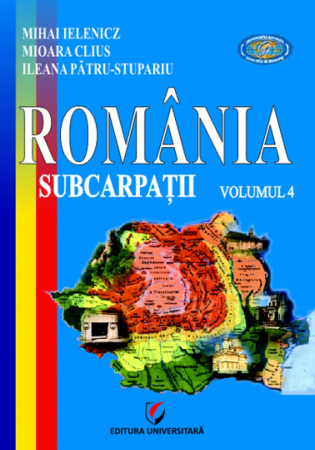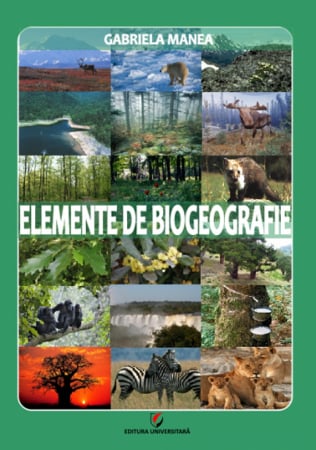Manuscript proposals: [email protected] / 0745 204 115 //// Tracking orders Individuals / Sales: 0745 200 357 / Orders Legal entities: 0721 722 783
ISBN: 978-606-28-1469-4
DOI: https://doi.org/10.5682/9786062814694
Publisher year: 2022
Edition: I
Pages: 116
Publisher: Editura Universitară
Author: Iuliana Pop
Product Code:
9786062814694
Do you need help?
0745 200 357
- Description
- Download (1)
- Authors
- Content
- More details
- Reviews (0)
Tourism is a social, cultural and economic phenomenon that aims at the mobility of people to unknown places, beyond the borders of their conventional residence, being usually motivated by pleasure or other personal interests. Tourism is a complex of dynamic activities that strongly define the economic performance of the 21st century.
On the world map, we can see an increase in the number of new tourist destinations, which include a number of emerging countries, with an increased flow of international tourists. The substantial increase in the number of tourists, especially in South-East Asia, but also in the Middle East, has contributed to the growth of the economic importance of tourism worldwide. This rapid development of tourism in countries with emerging economies is a typical phenomenon, which occurs in the post-industrial era and is supported by tourists' access to cultural, religious, sporting events and more.
Tourism is an important activity with social, cultural and environmental implications, involving a large number of employees. The globalization of tourism has provided a significant increase in employment opportunities, especially for developing and emerging countries. While in the second half of the twentieth century economic growth, including the tourism sector, has been driven by developed countries, the first half of the twenty-first century will probably face a relocation of the growth engine, especially in emerging countries and developing countries.
At the same time, tourism is influenced by social, demographic, natural, economic, ecological policies. The beginning of the third millennium is marked by a series of challenges that are difficult to anticipate. The first event that marked humanity was the terrorist attack on September 11, 2001, in the USA, with repercussions on tourism, travel and, especially, the safety of tourists. This unfortunate event has been replicated mainly in several developed countries, so that many trips have been canceled, postponed or carried out in unsafe conditions, although all necessary measures are taken for the safe conduct of tourism. These challenges have led to more and more talk about the correlation between tourism and terrorism, especially when the victims are precisely the main tourist destinations (France, Spain, Great Britain, Germany, Belgium, etc.), in addition to the older tourist regions, known for this type of event for the security of tourists.
Another big challenge is the climate change, both by the deterioration of the environment, and especially by the extreme phenomena that have extended their area of manifestation, but also the frequency and intensity. A series of hurricanes and other similar phenomena or earthquakes of devastating magnitude generally affect the coastal regions, which are also the most populated areas, but, at the same time, are also the most preferred places for coastal tourism, with all its components. These climatic changes do not forgive the mountainous areas either, strongly influencing the precipitation regime, the seasonality, important aspects for the tourist activity.
A recent challenge, with an unpredictable impact that has affected all mankind and all economic activities, has been a pandemic of COVID 19 since 2020. In the twentieth century there have been such health crises, but the framework manifestation was at the regional level, and the adverse consequences were not as large as those caused by the Sars virus ‑ CoV ‑ 2. The losses for tourism were unimaginable. Almost all tourist destinations in the world have been closed due to travel restrictions.
This moment produced important changes in the resumption of the activity, but also a reduction of the activity volume. The new practices imposed by the pandemic will enter into current practice to a large extent, in addition to a number of other measures that will transform tourism, adapting it to the digital age we are in, and smart tourism will be integrated into cities. smart cities, which have already taken the lead and continue to grow.
Last but not least, we must keep in mind that many countries have focused on the exploitation of natural resources, which they have in abundance. This has been favorable for economic development, but natural resources are depletable, and the economy has had to move to other sectors than the primary ones. Thus, several countries in the Middle East have chosen to turn their attention to the service sector, especially to tourism. The Middle East region, like the Asia-Pacific Region, has become very dynamic in tourism.
The 21st century is a century with great transformations and challenges, but also with new opportunities and perspectives, generated by the progress of society, which give us the courage to look further into the era of space tourism. This new dimension of tourism, until recently in the field of science fiction has now become a reality. The realization of the first cosmic tourist flight opens the gates to new horizons and maybe one day, it will not be just an exclusive type of tourism.
On the world map, we can see an increase in the number of new tourist destinations, which include a number of emerging countries, with an increased flow of international tourists. The substantial increase in the number of tourists, especially in South-East Asia, but also in the Middle East, has contributed to the growth of the economic importance of tourism worldwide. This rapid development of tourism in countries with emerging economies is a typical phenomenon, which occurs in the post-industrial era and is supported by tourists' access to cultural, religious, sporting events and more.
Tourism is an important activity with social, cultural and environmental implications, involving a large number of employees. The globalization of tourism has provided a significant increase in employment opportunities, especially for developing and emerging countries. While in the second half of the twentieth century economic growth, including the tourism sector, has been driven by developed countries, the first half of the twenty-first century will probably face a relocation of the growth engine, especially in emerging countries and developing countries.
At the same time, tourism is influenced by social, demographic, natural, economic, ecological policies. The beginning of the third millennium is marked by a series of challenges that are difficult to anticipate. The first event that marked humanity was the terrorist attack on September 11, 2001, in the USA, with repercussions on tourism, travel and, especially, the safety of tourists. This unfortunate event has been replicated mainly in several developed countries, so that many trips have been canceled, postponed or carried out in unsafe conditions, although all necessary measures are taken for the safe conduct of tourism. These challenges have led to more and more talk about the correlation between tourism and terrorism, especially when the victims are precisely the main tourist destinations (France, Spain, Great Britain, Germany, Belgium, etc.), in addition to the older tourist regions, known for this type of event for the security of tourists.
Another big challenge is the climate change, both by the deterioration of the environment, and especially by the extreme phenomena that have extended their area of manifestation, but also the frequency and intensity. A series of hurricanes and other similar phenomena or earthquakes of devastating magnitude generally affect the coastal regions, which are also the most populated areas, but, at the same time, are also the most preferred places for coastal tourism, with all its components. These climatic changes do not forgive the mountainous areas either, strongly influencing the precipitation regime, the seasonality, important aspects for the tourist activity.
A recent challenge, with an unpredictable impact that has affected all mankind and all economic activities, has been a pandemic of COVID 19 since 2020. In the twentieth century there have been such health crises, but the framework manifestation was at the regional level, and the adverse consequences were not as large as those caused by the Sars virus ‑ CoV ‑ 2. The losses for tourism were unimaginable. Almost all tourist destinations in the world have been closed due to travel restrictions.
This moment produced important changes in the resumption of the activity, but also a reduction of the activity volume. The new practices imposed by the pandemic will enter into current practice to a large extent, in addition to a number of other measures that will transform tourism, adapting it to the digital age we are in, and smart tourism will be integrated into cities. smart cities, which have already taken the lead and continue to grow.
Last but not least, we must keep in mind that many countries have focused on the exploitation of natural resources, which they have in abundance. This has been favorable for economic development, but natural resources are depletable, and the economy has had to move to other sectors than the primary ones. Thus, several countries in the Middle East have chosen to turn their attention to the service sector, especially to tourism. The Middle East region, like the Asia-Pacific Region, has become very dynamic in tourism.
The 21st century is a century with great transformations and challenges, but also with new opportunities and perspectives, generated by the progress of society, which give us the courage to look further into the era of space tourism. This new dimension of tourism, until recently in the field of science fiction has now become a reality. The realization of the first cosmic tourist flight opens the gates to new horizons and maybe one day, it will not be just an exclusive type of tourism.
-
Tourism Geography
Download
IULIANA POP
Foreword / 7
Chapter 1. Tourism - dynamic phenomenon / 10
Tourism - a key sector of the world economy / 10
The tourist and tourism / 11
Stages in the evolution of tourism / 14
Factors with impact on tourism development / 16
Chapter 2. The importance of tourism geography / 20
Key concepts used in tourism geography / 21
Taxonomic units used in tourism geography / 26
Chapter 3. Types and forms of tourism / 29
3.1. Types of tourism / 29
3.1.1. Holiday, leisure and recreation tourism / 30
3.1.2. Cultural and educational tourism / 34
3.1.3. Tourism for health care / 37
3.1.4. Business and professional tourism / 41
3.2. Forms of tourism / 41
Chapter 4. Tourist potential / 50
4.1. The natural tourist potential / 50
4.1.1. The tourist potential of the relief / 50
4.1.2. The tourist potential of the climate / 61
4.1.3. The tourist potential of the hydrosphere / 63
4.1.4. The tourist potential of the biosphere / 68
4.2. The anthropic tourist potential / 72
4.2.1. Megaliths / 72
4.2.2. Historic buildings: forts, fortified fortresses, castles, palaces. / 73
4.2.3. Religious buildings / 78
4.2.4. Cultural and sports buildings / 88
4.2.5. Monuments and statuary groups / 95
4.2.6. Economic buildings with tourist function / 98
4.2.7. The headquarters of some institutions, companies, exhibition complexes / 106
4.3. Tourist potential and tourist region / 108
Bibliography / 111
Chapter 1. Tourism - dynamic phenomenon / 10
Tourism - a key sector of the world economy / 10
The tourist and tourism / 11
Stages in the evolution of tourism / 14
Factors with impact on tourism development / 16
Chapter 2. The importance of tourism geography / 20
Key concepts used in tourism geography / 21
Taxonomic units used in tourism geography / 26
Chapter 3. Types and forms of tourism / 29
3.1. Types of tourism / 29
3.1.1. Holiday, leisure and recreation tourism / 30
3.1.2. Cultural and educational tourism / 34
3.1.3. Tourism for health care / 37
3.1.4. Business and professional tourism / 41
3.2. Forms of tourism / 41
Chapter 4. Tourist potential / 50
4.1. The natural tourist potential / 50
4.1.1. The tourist potential of the relief / 50
4.1.2. The tourist potential of the climate / 61
4.1.3. The tourist potential of the hydrosphere / 63
4.1.4. The tourist potential of the biosphere / 68
4.2. The anthropic tourist potential / 72
4.2.1. Megaliths / 72
4.2.2. Historic buildings: forts, fortified fortresses, castles, palaces. / 73
4.2.3. Religious buildings / 78
4.2.4. Cultural and sports buildings / 88
4.2.5. Monuments and statuary groups / 95
4.2.6. Economic buildings with tourist function / 98
4.2.7. The headquarters of some institutions, companies, exhibition complexes / 106
4.3. Tourist potential and tourist region / 108
Bibliography / 111
Tourism is a social, cultural and economic phenomenon that aims at the mobility of people to unknown places, beyond the borders of their conventional residence, being usually motivated by pleasure or other personal interests. Tourism is a complex of dynamic activities that strongly define the economic performance of the 21st century.
On the world map, we can see an increase in the number of new tourist destinations, which include a number of emerging countries, with an increased flow of international tourists. The substantial increase in the number of tourists, especially in South-East Asia, but also in the Middle East, has contributed to the growth of the economic importance of tourism worldwide. This rapid development of tourism in countries with emerging economies is a typical phenomenon, which occurs in the post-industrial era and is supported by tourists' access to cultural, religious, sporting events and more.
Tourism is an important activity with social, cultural and environmental implications, involving a large number of employees. The globalization of tourism has provided a significant increase in employment opportunities, especially for developing and emerging countries. While in the second half of the twentieth century economic growth, including the tourism sector, has been driven by developed countries, the first half of the twenty-first century will probably face a relocation of the growth engine, especially in emerging countries and developing countries.
At the same time, tourism is influenced by social, demographic, natural, economic, ecological policies. The beginning of the third millennium is marked by a series of challenges that are difficult to anticipate. The first event that marked humanity was the terrorist attack on September 11, 2001, in the USA, with repercussions on tourism, travel and, especially, the safety of tourists. This unfortunate event has been replicated mainly in several developed countries, so that many trips have been canceled, postponed or carried out in unsafe conditions, although all necessary measures are taken for the safe conduct of tourism. These challenges have led to more and more talk about the correlation between tourism and terrorism, especially when the victims are precisely the main tourist destinations (France, Spain, Great Britain, Germany, Belgium, etc.), in addition to the older tourist regions, known for this type of event for the security of tourists.
Another big challenge is the climate change, both by the deterioration of the environment, and especially by the extreme phenomena that have extended their area of manifestation, but also the frequency and intensity. A series of hurricanes and other similar phenomena or earthquakes of devastating magnitude generally affect the coastal regions, which are also the most populated areas, but, at the same time, are also the most preferred places for coastal tourism, with all its components. These climatic changes do not forgive the mountainous areas either, strongly influencing the precipitation regime, the seasonality, important aspects for the tourist activity.
A recent challenge, with an unpredictable impact that has affected all mankind and all economic activities, has been a pandemic of COVID 19 since 2020. In the twentieth century there have been such health crises, but the framework manifestation was at the regional level, and the adverse consequences were not as large as those caused by the Sars virus ‑ CoV ‑ 2. The losses for tourism were unimaginable. Almost all tourist destinations in the world have been closed due to travel restrictions.
This moment produced important changes in the resumption of the activity, but also a reduction of the activity volume. The new practices imposed by the pandemic will enter into current practice to a large extent, in addition to a number of other measures that will transform tourism, adapting it to the digital age we are in, and smart tourism will be integrated into cities. smart cities, which have already taken the lead and continue to grow.
Last but not least, we must keep in mind that many countries have focused on the exploitation of natural resources, which they have in abundance. This has been favorable for economic development, but natural resources are depletable, and the economy has had to move to other sectors than the primary ones. Thus, several countries in the Middle East have chosen to turn their attention to the service sector, especially to tourism. The Middle East region, like the Asia-Pacific Region, has become very dynamic in tourism.
The 21st century is a century with great transformations and challenges, but also with new opportunities and perspectives, generated by the progress of society, which give us the courage to look further into the era of space tourism. This new dimension of tourism, until recently in the field of science fiction has now become a reality. The realization of the first cosmic tourist flight opens the gates to new horizons and maybe one day, it will not be just an exclusive type of tourism.
On the world map, we can see an increase in the number of new tourist destinations, which include a number of emerging countries, with an increased flow of international tourists. The substantial increase in the number of tourists, especially in South-East Asia, but also in the Middle East, has contributed to the growth of the economic importance of tourism worldwide. This rapid development of tourism in countries with emerging economies is a typical phenomenon, which occurs in the post-industrial era and is supported by tourists' access to cultural, religious, sporting events and more.
Tourism is an important activity with social, cultural and environmental implications, involving a large number of employees. The globalization of tourism has provided a significant increase in employment opportunities, especially for developing and emerging countries. While in the second half of the twentieth century economic growth, including the tourism sector, has been driven by developed countries, the first half of the twenty-first century will probably face a relocation of the growth engine, especially in emerging countries and developing countries.
At the same time, tourism is influenced by social, demographic, natural, economic, ecological policies. The beginning of the third millennium is marked by a series of challenges that are difficult to anticipate. The first event that marked humanity was the terrorist attack on September 11, 2001, in the USA, with repercussions on tourism, travel and, especially, the safety of tourists. This unfortunate event has been replicated mainly in several developed countries, so that many trips have been canceled, postponed or carried out in unsafe conditions, although all necessary measures are taken for the safe conduct of tourism. These challenges have led to more and more talk about the correlation between tourism and terrorism, especially when the victims are precisely the main tourist destinations (France, Spain, Great Britain, Germany, Belgium, etc.), in addition to the older tourist regions, known for this type of event for the security of tourists.
Another big challenge is the climate change, both by the deterioration of the environment, and especially by the extreme phenomena that have extended their area of manifestation, but also the frequency and intensity. A series of hurricanes and other similar phenomena or earthquakes of devastating magnitude generally affect the coastal regions, which are also the most populated areas, but, at the same time, are also the most preferred places for coastal tourism, with all its components. These climatic changes do not forgive the mountainous areas either, strongly influencing the precipitation regime, the seasonality, important aspects for the tourist activity.
A recent challenge, with an unpredictable impact that has affected all mankind and all economic activities, has been a pandemic of COVID 19 since 2020. In the twentieth century there have been such health crises, but the framework manifestation was at the regional level, and the adverse consequences were not as large as those caused by the Sars virus ‑ CoV ‑ 2. The losses for tourism were unimaginable. Almost all tourist destinations in the world have been closed due to travel restrictions.
This moment produced important changes in the resumption of the activity, but also a reduction of the activity volume. The new practices imposed by the pandemic will enter into current practice to a large extent, in addition to a number of other measures that will transform tourism, adapting it to the digital age we are in, and smart tourism will be integrated into cities. smart cities, which have already taken the lead and continue to grow.
Last but not least, we must keep in mind that many countries have focused on the exploitation of natural resources, which they have in abundance. This has been favorable for economic development, but natural resources are depletable, and the economy has had to move to other sectors than the primary ones. Thus, several countries in the Middle East have chosen to turn their attention to the service sector, especially to tourism. The Middle East region, like the Asia-Pacific Region, has become very dynamic in tourism.
The 21st century is a century with great transformations and challenges, but also with new opportunities and perspectives, generated by the progress of society, which give us the courage to look further into the era of space tourism. This new dimension of tourism, until recently in the field of science fiction has now become a reality. The realization of the first cosmic tourist flight opens the gates to new horizons and maybe one day, it will not be just an exclusive type of tourism.
If you want to express your opinion about this product you can add a review.
write a review

6359.png)
![Tourism Geography - Iuliana Pop [1] Tourism Geography - Iuliana Pop [1]](https://gomagcdn.ro/domains/editurauniversitara.ro/files/product/large/geografia-turismului-018761.jpg)
